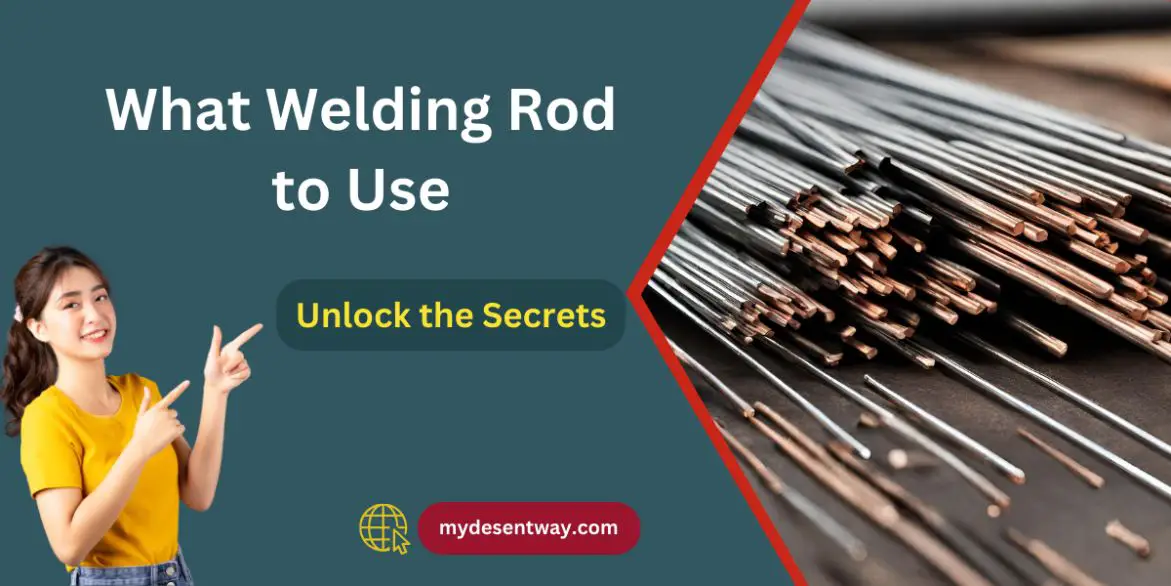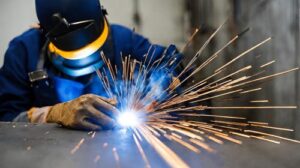Table of Contents
Hey there, fellow welders! Are you ready to dive into the electrifying world of welding rods? Choosing the right welding rod can make all the difference in the success of your welding project. But with so many options out there, how do you know which one to pick? Don’t worry; I’ve got you covered.
In this guide, we’ll explore everything you need to know about what welding rod to use for your next project. From understanding different types of welding rods to selecting the perfect one for your specific application, let’s spark some creativity and get welding!
Understanding Welding Rods: The Basics
Before we dive into the specifics of which welding rod to use, let’s take a moment to understand the fundamentals.
What are Welding Rods?
Welding rods, also known as electrodes, are essential components in the welding process. They conduct an electric current that creates an arc, melting the base metal and forming a strong bond.
Types of Welding Rods
Welding rods come in various types, each designed for specific applications:
- SMAW (Shielded Metal Arc Welding) Rods:
- Ideal for general-purpose welding.
- Suitable for welding on rusty or dirty materials.
- Great for outdoor welding due to their versatility and ability to work in windy conditions.
- TIG (Tungsten Inert Gas) Rods:
- Perfect for precision welding.
- Provides clean and precise welds, making them ideal for intricate projects.
- Requires a high level of skill to use effectively.
- MIG (Metal Inert Gas) Rods:
- Excellent for high-speed welding.
- Ideal for welding thick materials quickly and efficiently.
- Offers a clean and spatter-free weld.
- Flux-Cored Arc Welding (FCAW) Rods:
- Great for welding thick materials.
- Provides deep penetration and strong welds.
- Suitable for outdoor welding, especially in windy conditions.
Factors to Consider When Choosing a Welding Rod
Selecting the right welding rod is crucial for achieving optimal results. Consider the following factors before making your choice:
Metal Type
Different metals require specific welding rods for optimal results. Consider the base metal you’ll be welding:
- Steel: Opt for E6011 or E7018 electrodes for welding mild steel.
- Stainless Steel: Choose E308 or E316 electrodes for welding stainless steel.
- Aluminum: Use ER4043 or ER5356 filler rods for welding aluminum.
Thickness of Metal
The thickness of the metal also influences your choice of welding rod. As a general rule:
- Thin Metal: Select thinner electrodes for welding thin metal to prevent burn-through.
- Thick Metal: For thicker metal, choose electrodes with higher deposition rates for efficient welding.
Welding Position
Consider the welding position when selecting a welding rod:
- Flat Position: Most electrodes perform well in the flat position.
- Vertical Position: Use electrodes specifically designed for vertical welding to ensure proper deposition and penetration.
Conclusion: Finding Your Perfect Match
In the vast world of welding, selecting the right welding rod is akin to finding your soulmate—it requires compatibility, understanding, and a dash of intuition.
By considering factors such as metal type, thickness, and welding position, you can confidently choose the perfect welding rod for your next project.
So, the next time you find yourself pondering, What welding rod to use? remember this guide and weld away with certainty and skill! Happy welding!
FAQs about What Welding Rod to Use?
Can I use the same welding rod for different types of metals?
While some welding rods may work for multiple types of metals, it’s generally recommended to use a welding rod specifically designed for the metal you’re working with to achieve the best results.
How do I know which welding rod size to use?
Welding rod sizes are typically determined by their diameter. Refer to the manufacturer’s guidelines or welding charts to choose the appropriate size based on your welding machine and the thickness of the material you’re welding.
Can I use the same welding rod for different types of metal?
Yes, certain electrodes, such as E7018, are versatile and can be used for welding various metals. However, for optimal results, it’s recommended to use electrodes specifically designed for the type of metal being welded.
Are there specific welding rods for welding rusty metal?
Yes, there are welding rods specifically designed for welding rusty or dirty metal surfaces. These rods typically have a flux coating that helps remove surface contaminants and promote better weld penetration on rusty or dirty surfaces.
Can you use a TIG welding rod for MIG welding?
No, TIG welding rods are not suitable for MIG welding. They are designed for different welding processes and have distinct characteristics.

